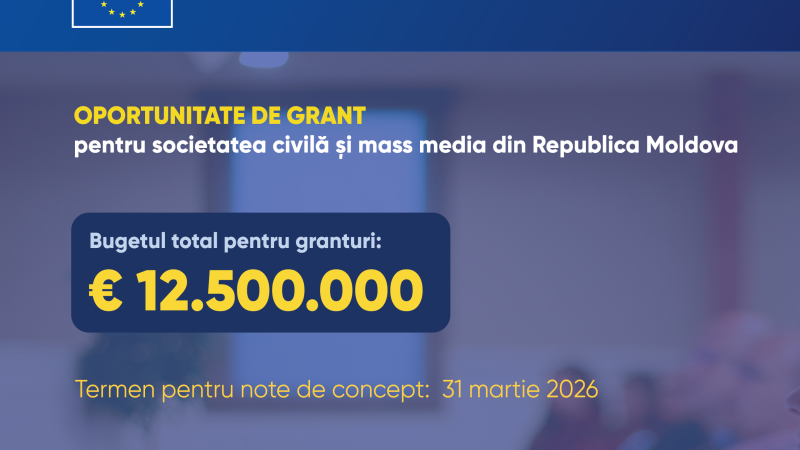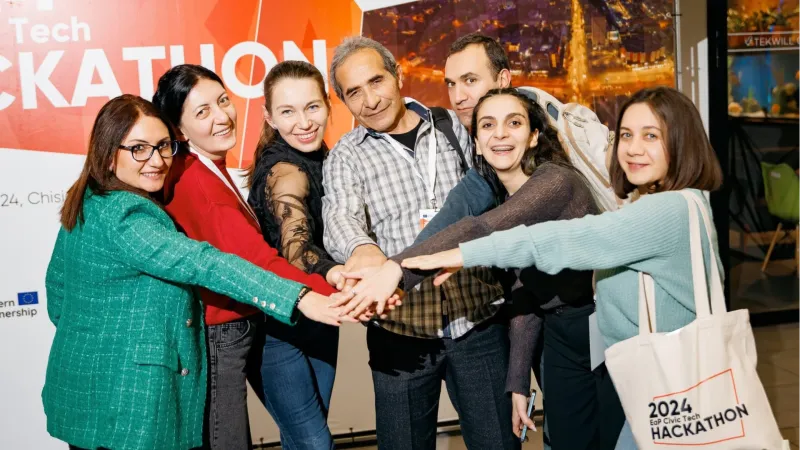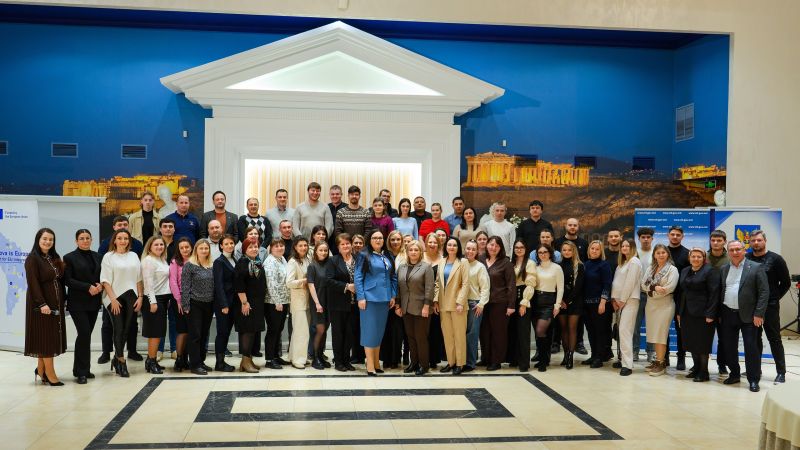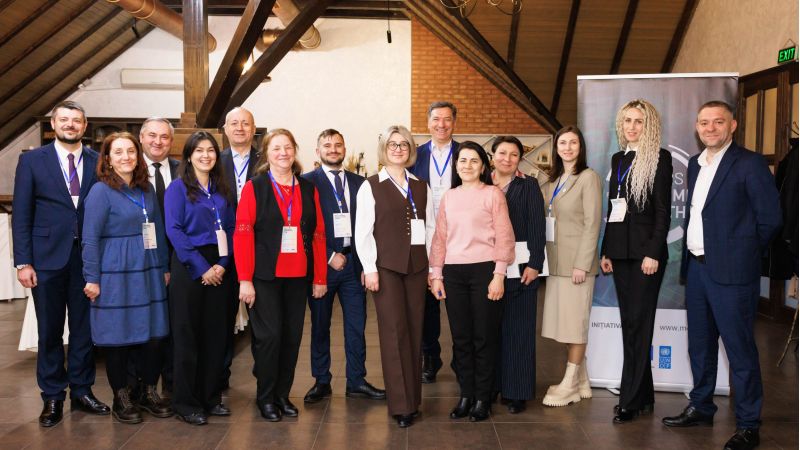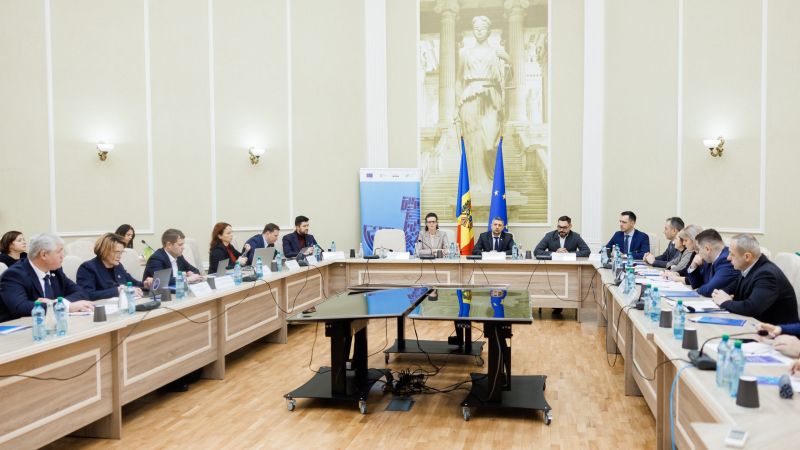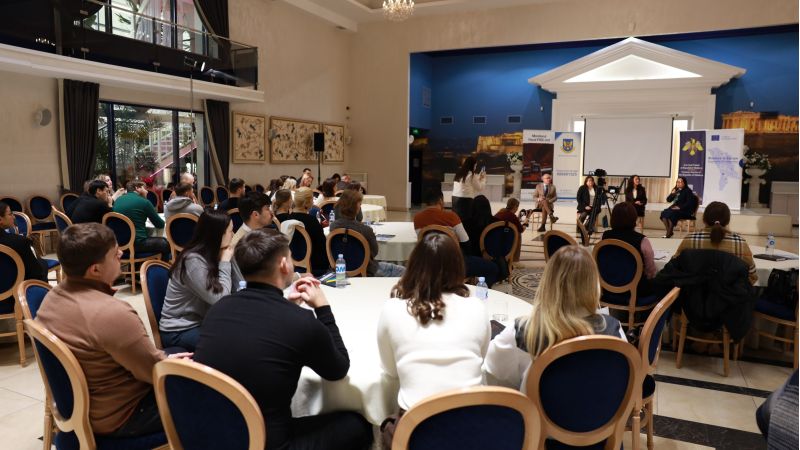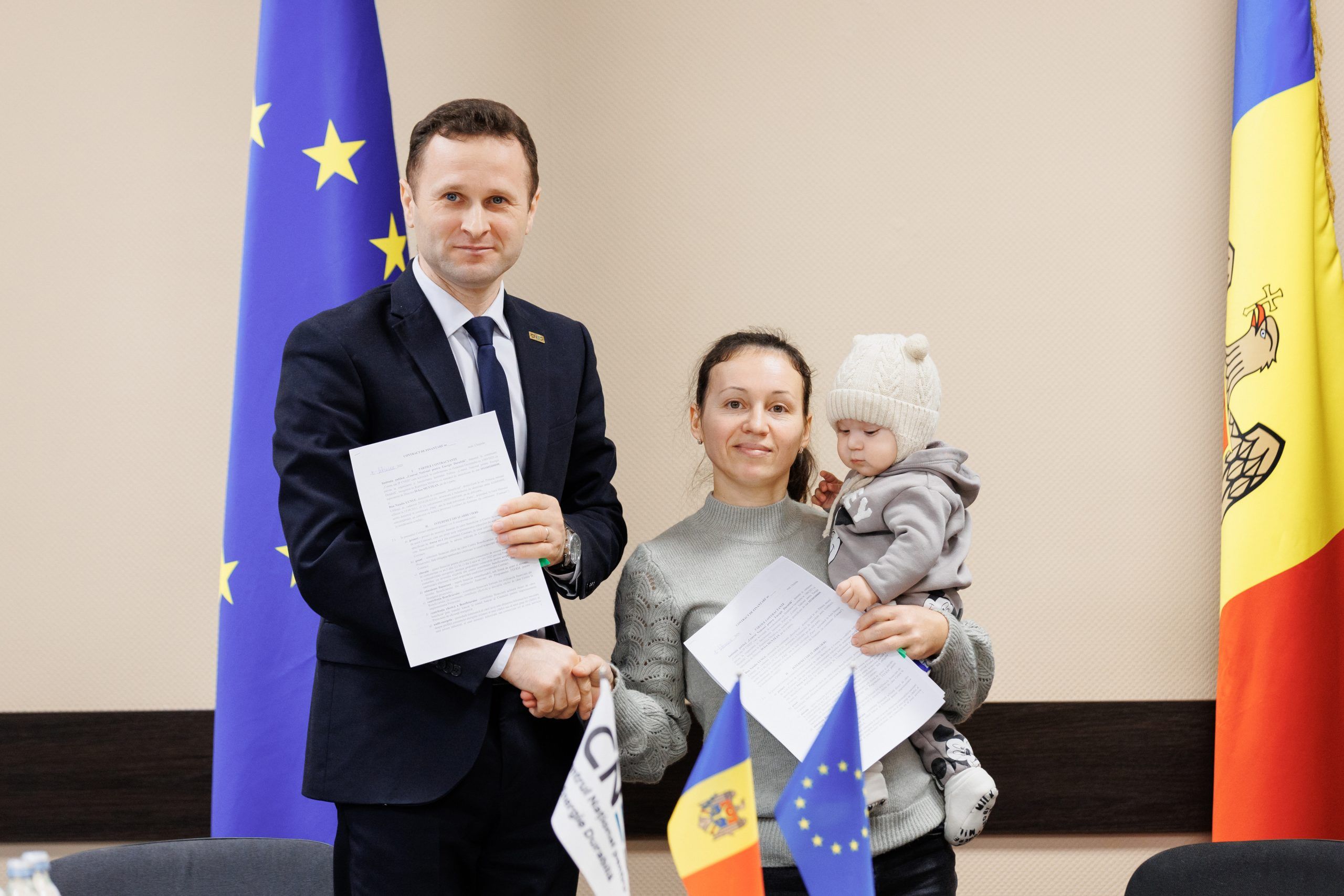
Eficiență energetică pentru Moldova rurală: Primii proprietari au semnat contractele pentru modernizarea locuințelor lor
Centrul Național pentru Energie Durabilă (CNED) a lansat primele pachete de sprijin financiar destinate gospodăriilor vulnerabile energetic din zonele rurale. Anul acesta, 180 de case individuale vor beneficia de lucrări de reabilitare energetică, în cadrul unui proiect-pilot finanțat de Uniunea Europeană. Primele 13 contracte au fost semnate astăzi cu proprietari de locuințe din raioanele Călărași, Strășeni și Telenești.
„Republica Moldova are o intensitate energetică de două ori mai mare decât în Uniunea Europeană. Acest lucru înseamnă și facturi mai mari pentru populație și o economie mai puțin competitivă. Prin lansarea Fondului de Eficiență Energetică în sectorul rezidențial ne propunem să investim în eficientizarea energetică a locuințelor cel puțin 1,4 miliarde lei în următorii ani, pentru a reduce costurile pentru energie ale populației, păstrând confortul termic. Totodată, aceste investiţii vor crea noi locuri de muncă şi vor crea noi oportunităţi economice”, a declarat Carolina Novac, secretară de stat la Ministerul Energiei.
„Este pentru prima dată când populația din Republica Moldova beneficiază de acces direct la programe guvernamentale de finanțare pentru eficiența energetică. Aceste programe răspund nevoilor urgente ale gospodăriilor vulnerabile și susțin obiectivele naționale pentru un viitor mai sustenabil, cu economii semnificative la facturile de energie. În continuare, CNED va organiza licitații pentru lucrările necesare „, a declarat Ion Muntean, directorul CNED.
Programul face parte dintr-un efort amplu de investiții în eficiența energetică prin intermediul proiectului „Eficiență Energetică și Energii Regenerabile în Republica Moldova” (E4M), finanțat de Ministerul Federal German pentru Cooperare Economică și Dezvoltare (BMZ), Uniunea Europeană și Norvegia și implementat de Agenția de Cooperare Internațională a Germaniei (GIZ). Proiectul E4M își propune accelerarea tranziției energetice în Moldova cu obiectivul specific de a reduce dependența de importurile de energie și de a crea beneficii financiare pentru gospodăriile moldovenești prin eficiență energetică sporită și utilizarea surselor regenerabile de energie.
„Economiile de energie rezultate din renovarea energetică a locuințelor individuale din mediul rural vor reduce cheltuielile gospodăriilor pentru încălzire cu cel puțin 40% și până la 60%. Acest impact este resimțit cel mai puternic în timpul iernii, dar va oferi un sprijin financiar beneficiarilor pe tot parcursul anului și pentru decenii întregi. Mai mult, confortul termic sporit, printr-o locuință caldă și fără pereți reci, contribuie la îmbunătățirea condițiilor de trai și a calității vieții”, a subliniat Verena Zell, Șefa Cooperării pentru Dezvoltare din cadrul Ambasadei Republicii Federale Germania în Republica Moldova.
Pentru toate cele 180 de gospodării incluse în proiectul-pilot, Uniunea Europeană a alocat 1 milion de euro.
„Aceste locuințe nu doar că vor consuma mai puțină energie, dar vor oferi și confort și demnitate familiilor care locuiesc în ele. Criza energetică din ultimii doi ani a arătat clar cât de important este să folosim energia într-un mod responsabil și că toți cetățenii Republicii Moldova trebuie să fie parte a acestui efort. UE sprijină poporul moldovean prin toate mijloacele posibile, inclusiv aducând eficiența energetică mai aproape de fiecare locuință. Așa are loc o tranziție verde echitabilă – asigurându-ne că nimeni nu este lăsat în urmă”, a declarat Jānis Mažeiks, Ambasadorul Uniunii Europene în Republica Moldova.
În perioada octombrie 2024 – ianuarie 2025, în cadrul programului de sprijin, au fost efectuate 58 de audituri energetice ale gospodăriilor din zonele rurale. Auditurile au conturat pierderile energetice pe care le are fiecare casă și au stabilit un set de măsuri clare pentru eficientizarea energetică. Cu sprijinul experților, beneficiarii au adaptat recomandările auditului la nevoile specifice ale fiecărei locuințe, iar lucrările de reabilitare urmează să înceapă în primăvara acestui an.
„Acest proiect aduce schimbări reale acolo unde ele sunt resimțite cel mai mult – ajutând familiile să trăiască în case mai calde și cu costuri mai mici la energie. Mai mult decât atât, acesta reprezintă un pas spre un viitor energetic mai sustenabil și mai echitabil pentru Moldova bazat pe soluții practice și responsabilitate comună”, a declarat Claudia Hermes, Director de țară, GIZ Moldova.
Semnarea primelor contracte reprezintă un pas esențial în eforturile Republicii Moldova de a spori eficiența energetică și de a sprijini comunitățile vulnerabile.

